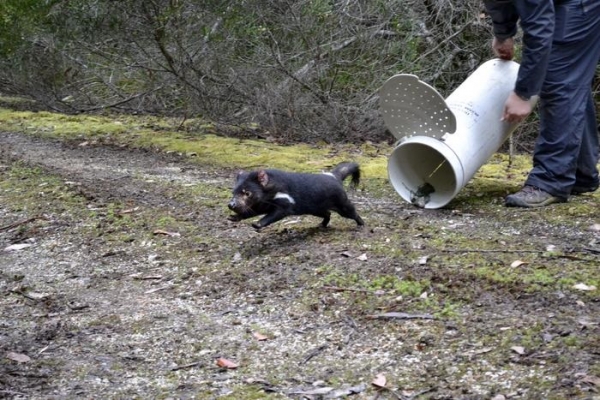Over the past 30 years, Australia’s Tasmanian devil population has been afflicted with an infectious cancer that has pushed the species to near extinction.
Over the past 30 years, Australia’s Tasmanian devil population has been afflicted with an infectious cancer that has pushed the species to near extinction. The marsupials are highly susceptible to devil facial tumor disease, which is almost always fatal to their species. The genomic interactions between the disease and its host correlate with how quickly a susceptible animal becomes infected after exposure to the pathogen.
Through DNA sequencing of the animals and their tumors, USF Assistant Professor of Integrative Biology Mark Margres and PhD student Dylan Gallinson have tracked the genomic interactions between the devils and the cancer. Their findings have been published in a coauthored paper, “Intergenomic signatures of coevolution between Tasmanian devils and an infectious cancer,” in the Proceedings of the National Academy of Sciences (PNAS).
“A big question in biology is the genetic basis for disease. The classic way to determine this is through genome studies and regression analysis that matches genes with disease risk,” Margres said. “Previously there hadn’t been a technique to study the interactions between both genomes.”
Read more at: University of South Florida
Researchers release a Tasmanian devil as part of a study of how genomic research may be key to understanding cancer in the animals. (Photo Credit: Alexandra Fraik)




